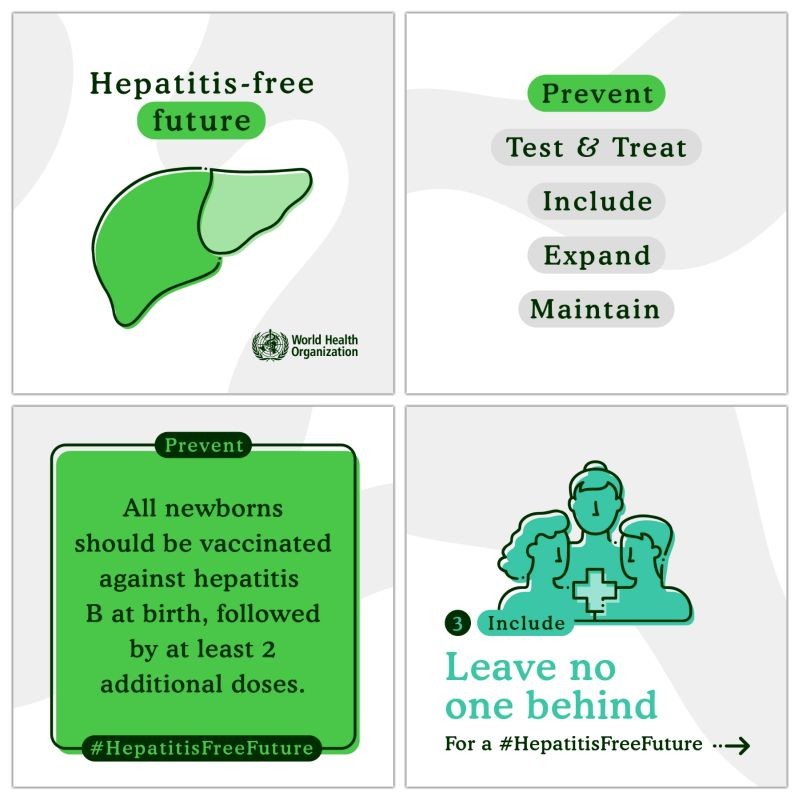World Health Organization’s World Hepatitis Day 2020 Campaign materials

Atono Tsükrü Kense
Kohima | July 28
Concerns that the needs of people who desire to get tested and treated for viral hepatitis are being overlooked as the world battles with the COVID-19 crisis were raised during a webinar commemorating World Hepatitis Day today.
The discourse focused on the theme “The right to health is as fundamental as civil right, it should not be a privilege,” with participants voicing concerns that without any government initiated programmes, treatment and diagnosis of viral hepatitis continue to remain neglected. The situation, according to participants, is further worsened with the COVID-19 crisis that has threatened to derail programmes across the country.
Ketho Angami, President, Access to Rights and Knowledge (ARK) Foundation, terming viral hepatitis C as a silent major threat to public health, held the view that “one particular health crises should not overshadow another health crisis. Both should be addressed with equal priority.”
However, he lamented that this has not been the case across the country and more so in Nagaland where district hospitals which are expected to treat viral hepatitis B and C have been converted into COVID Care Hospitals and labeled as “sealed area.”
“Such restrictions to the entry of the hospitals have deterred people from availing the services,” he pointed out while matter-of-factly stating that the entire health machinery has put focus on addressing the containment and treatment of COVID. This, he said, has resulted in total absence of any medical work force in the hospitals to address the needs of people who desire to get tested and treated for viral hepatitis B and C.
Stressing on the theme, Angami maintained “we are not asking to be given more attention to that of COVID, but we shouldn’t be treated with less priority as any loss of precious human lives due to any sort of disease counts. This applies to loss of lives of a disease in the form of Viral Hepatitis B and C.”
Stating that losses of lives from curable diseases are avoidable, the ARK foundation president called upon the state government to restore the State Viral Hepatitis Control Programme in the state.
Also sharing his concern, Abou Mere, Director, Kripa Foundation pointed out that with no surveillance system in place or independent studies available in the state, the burden of Hepatitis C (HCV) disease is unknown.
He shared the data of the Integrated Bio Behavioral Assessment (IBBA) study among injecting drug users from Phek and Wokha districts which showed prevalence rates of 8.7% and 20.8% respectively. A study on the burden on Hepatitis C by the Center for AIDS Hopkins University (JHU) and YRG Care Chennai which was published in Lancet Journal in 2014 shows Dimapur town has 9.1% prevalence of HCV.
Although the independent studies of JHU and YRG are still ongoing in Dimapur, Mere lamented that “they did not share or disseminate their findings with the state government till date.”
He also stated his disappointment over the fact that in Nagaland, the required sustained commitment and action are not seen from the stakeholders, state government, health department, CSOs, NGOs or even the affected communities and high-risk groups in response to viral hepatitis.
“There is no coordination between various doctors and nurses and unable to provide information in relation to viral hepatitis programmes,” claimed Mere. He also pointed out that HCV still poses a major threat to public health, economic and social crises even as treatments are evolving rapidly, with several new and highly effective medicines already in the market alongside free diagnostics and treatment methods.
To this end, Mere emphasized on the need for the state government to create awareness on how hepatitis are transmitted and the diagnostic and treatments available with Direct Acting Antivirus (DAA) medicines in District Hospitals.
Making a clarion call to all concern, Mere said “let us combine our voices to raise awareness on viral hepatitis and put an end to all forms of discrimination, make diagnostic and treatment easy accessible to people suffering from viral hepatitis.”
The webinar programme was an initiative of ARK Foundation in collaboration with NUN and Kripa Foundation, Nagaland and supported by ITPC/DNP+.






